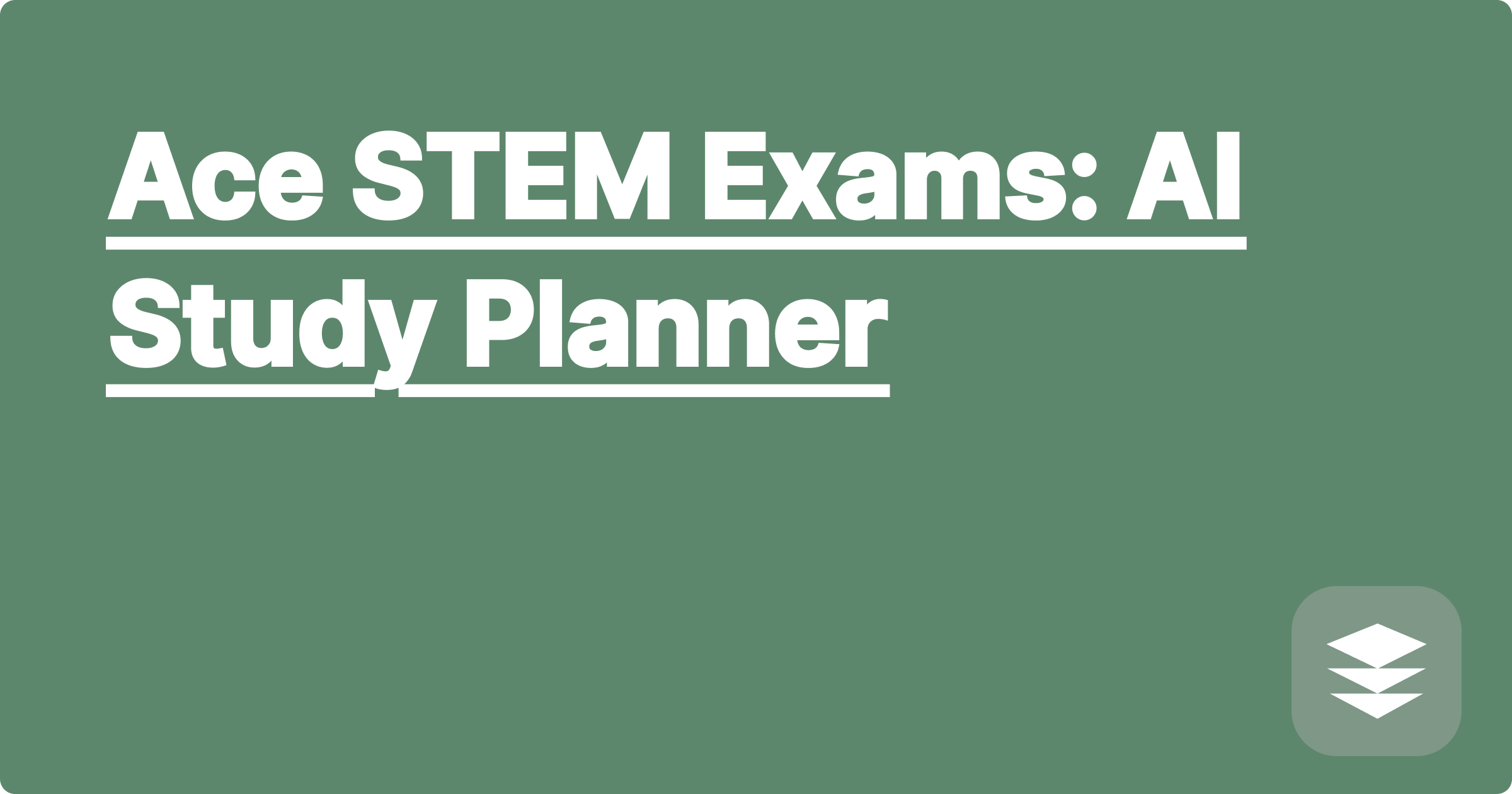
The demanding world of STEM education and research presents a significant challenge: effectively managing the vast amount of information and complex concepts necessary for success. Students and researchers often struggle with overwhelming syllabi, dense textbooks, and the pressure to perform well on critical exams. Artificial intelligence (AI) offers a powerful solution to this challenge by providing intelligent tools that can personalize learning, optimize study time, and ultimately enhance academic performance. AI-powered study planners can revolutionize how STEM students and researchers approach their studies, transforming the learning process from a daunting task into a more manageable and efficient experience.
This shift towards AI-powered learning is crucial for STEM fields, as it empowers individuals to navigate the ever-increasing complexity of scientific and technological advancements. By leveraging AI, students can gain a deeper understanding of complex topics, improve their problem-solving skills, and ultimately contribute to groundbreaking research and innovation. The ability to efficiently process and apply information is paramount in STEM, and AI tools provide the necessary support to achieve this goal. This blog post will explore how AI-powered study planners can be used to conquer STEM exams and excel in academic pursuits.
STEM subjects often involve intricate concepts, complex formulas, and vast amounts of information that can be difficult to absorb and retain. Traditional study methods, such as rote memorization and passive reading, often prove inadequate for mastering these challenging subjects. Students frequently find themselves overwhelmed by the sheer volume of material, leading to inefficient study habits and ultimately, suboptimal performance on exams. The lack of personalized learning experiences further exacerbates this issue, as students may struggle to identify their weaknesses and focus their efforts on the most critical areas. Furthermore, traditional study plans often lack the flexibility to adapt to individual learning styles and changing academic demands. This rigidity can lead to frustration and a sense of being overwhelmed, hindering the learning process and impacting academic performance.
AI tools like ChatGPT, Claude, and Wolfram Alpha offer a dynamic and personalized approach to studying. ChatGPT and Claude can be used to generate practice questions, summarize complex topics, and provide explanations for difficult concepts. These AI language models can also be used to create personalized study guides based on specific learning objectives and exam requirements. Wolfram Alpha, a computational knowledge engine, can be invaluable for solving complex mathematical problems, visualizing data, and understanding scientific concepts. By combining the strengths of these different AI tools, students can create a comprehensive and effective study plan tailored to their individual needs. These tools can adapt to the student's learning pace and provide targeted feedback, ensuring that they focus on the areas where they need the most improvement.
Begin by identifying the key topics and concepts covered in the exam syllabus. Then, use ChatGPT or Claude to generate a comprehensive list of learning objectives for each topic. These learning objectives will serve as a roadmap for your study plan. Next, use these AI tools to summarize complex topics and create concise study notes. You can also ask these tools to generate practice questions and provide explanations for difficult concepts. For subjects involving complex calculations or data analysis, use Wolfram Alpha to solve problems, visualize data, and gain a deeper understanding of the underlying principles. Integrate these different AI-generated resources into a cohesive study plan, scheduling specific time slots for each topic and ensuring regular review sessions. Continuously evaluate your progress and adjust your study plan based on your performance on practice quizzes and your understanding of the material.
Consider a student preparing for an exam on calculus. They can use Wolfram Alpha to understand the derivative of a complex function like f(x) = x^3sin(2x). Wolfram Alpha will not only provide the derivative but also show the steps involved in the calculation. The student can then use ChatGPT to generate practice problems involving similar functions and test their understanding. For a biology exam, a student could use ChatGPT to summarize the process of photosynthesis and then use Claude to generate questions about the different stages of the process. They could also ask ChatGPT to explain the Krebs cycle in simpler terms and provide real-world examples of its application. These examples demonstrate how AI tools can be used to enhance understanding and improve problem-solving skills across different STEM disciplines.
To maximize the benefits of AI-powered study tools, it's crucial to develop effective strategies for their use. Don't rely solely on AI-generated content; use it as a supplement to traditional learning resources like textbooks and lectures. Actively engage with the material by asking questions, seeking clarification, and applying the concepts to real-world scenarios. Regularly test your understanding by taking practice quizzes and solving problems. Collaborate with peers and discuss challenging concepts with them. Use AI tools to identify your weaknesses and focus your study efforts on the areas where you need the most improvement. By combining the power of AI with effective study habits, you can significantly enhance your academic performance and achieve your learning goals.
In conclusion, AI-powered study planners offer a transformative approach to STEM education and research. By leveraging the capabilities of tools like ChatGPT, Claude, and Wolfram Alpha, students and researchers can overcome the challenges of information overload and complex concepts. These tools empower learners to personalize their study experience, optimize their time, and achieve a deeper understanding of the subject matter. Embracing these AI-powered solutions is not just about improving exam scores; it's about fostering a deeper appreciation for STEM fields and contributing to future advancements in science and technology. Start exploring these tools today and unlock your full academic potential. Experiment with different AI platforms and find the combination that best suits your learning style and academic needs. The future of STEM learning is here, and it's powered by AI.
Ace STEM Exams: AI Study Planner
AI Homework Help: STEM Solutions
AI for Labs: Data Analysis Made Easy
STEM Exam Prep: AI-Powered Tutor
AI in Engineering: Design Optimization
Solve STEM Problems: AI Assistant
AI for Research: Data Visualization